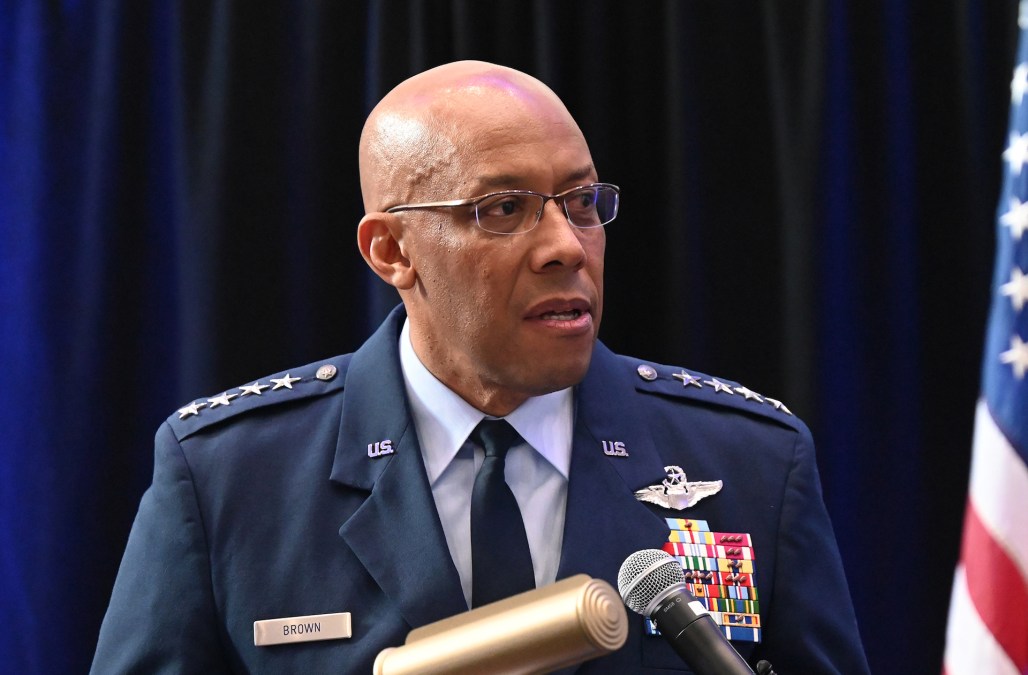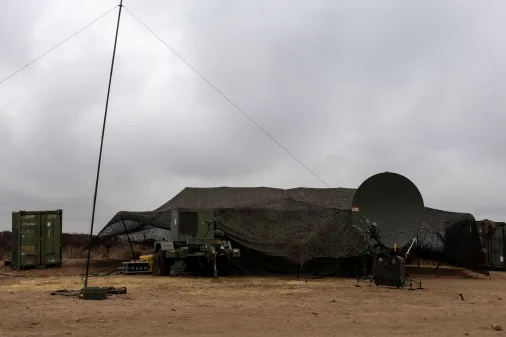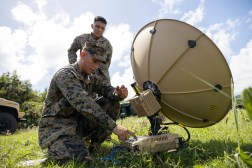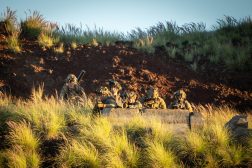Air Force chief contemplating new ‘tech track’ and military occupational specialties for data experts

The Air Force is looking at establishing a new career “tech track” for personnel with special know-how, and that may include creating military occupational specialties for data experts, the service’s top officer suggested Monday.
The desire to improve talent management comes as the U.S. military seeks to up its game in how it leverages data at the tactical edge for Joint All-Domain Command and Control (JADC2) as well as for back-office functions.
“We’re looking at how we do our fellowships, how we do education with industry, but [also] how we have maybe a different career path — a tech track. Matter of fact, I just sat down with our personnel team last week [and] this has been something that I’ve given them to solve as we move forward,” Air Force Chief of Staff Gen. Charles “CQ” Brown said during remarks at the Brookings Institution.
The traditional promotion system and patterns of rotating people in and out of jobs and moving them to different stations around the world might not be optimal for some tech-savvy service members in the digital age, such as artificial intelligence experts or people with data science backgrounds, Brown suggested.
“We have what we call career pyramids … which means these are the squares you’ve got to fill in order to move up the chain. I want to take a sliver off the side of that and say, ‘You’ve got some special skills, you don’t have to follow the same path.’ I want to make sure that you continue to have the opportunity to do meaningful work, opportunities to still get promoted and get pay raises. Maybe you don’t move, you stay in the same location for a number of years versus our standard three-to-four-year cycle of movement, and allow individuals to progress that way,” Brown said.
The military is looking for better ways to move information around the battlefield from sensors to shooters and across networks to improve decision-making under JADC2. It also needs to more efficiently sift through vast amounts of information that it collects and manages so that service members aren’t overwhelmed by it.
Improving how service members use and “operate data” will require leveraging talent and learning from experts in industry or other places outside the Department of Defense, Brown noted. But building the Air Force’s internal expertise and retaining it may also require creating new military occupational specialties, he suggested.
“There’s aspects [where] we don’t know what we don’t know,” Brown said. “There’s people inside the Air Force that know how to do this, but not probably to the level that we’re probably going to need … if I think about the Air Force specialties we have today, there’s some that we have today that we probably won’t need in the future; and there’s probably some that we don’t have today that we need more of, like data. And how do you start to build out that career field and those capabilities and say, ‘These are valuable to the Air Force’ and build them into and give them a developmental path and a career that … they can see themselves [moving] up to the higher levels?”






